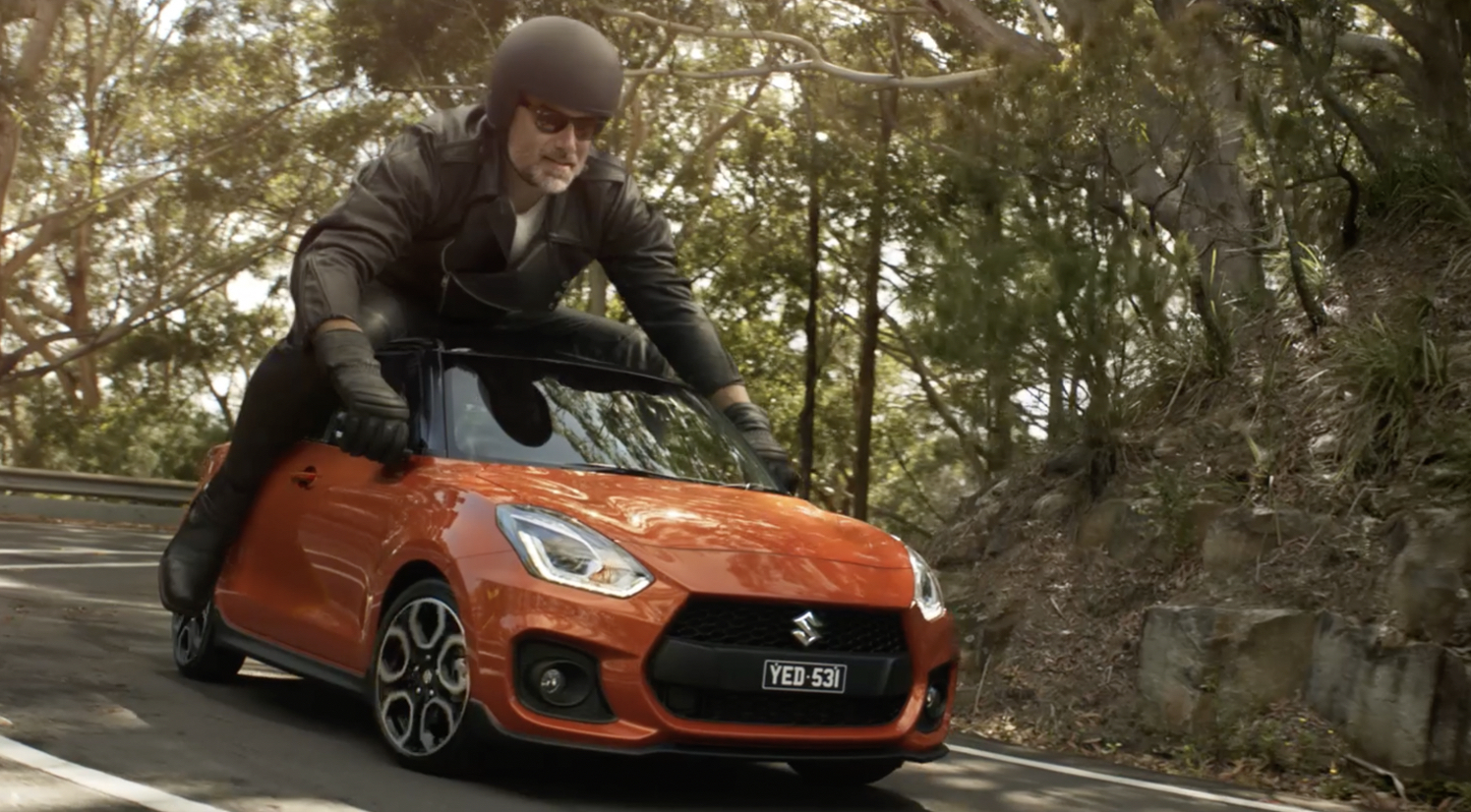Suzuki Australia marketing boss on Deloitte’s 'creative geniuses', digital as a primary channel and boosting sales during Covid

Suzuki Australia General Manager, automobiles, Michael Pachota, rejects claims consultancies can’t do creativity and attributes the auto brand’s 30 per cent increase in sales during 2020 to the “creative geniuses” at Deloitte and the significant performance of digital channels.
What you need to know:
- Suzuki Australia general manager Michael Pachota rejects criticisms that consultancies lack creativity.
- Praises Deloitte Digital’s “creative geniuses” for helping Suzuki grow sales 30 per cent in 2020.
- The auto brand slashed its marketing budget by 80 per cent in April before clawing back to nearly 50 per cent by year end.
- After funnelling all spend into digital last year, digital will remain the brand’s primary channel over TV.
Results speak louder than words. Everything that we have delivered with Deloitte, from the creative journey to a briefing exercise to an approval exercise, they haven’t missed the mark yet.
The well-worn criticism that consultancies are corporate beasts that can’t do creativity doesn’t sit well with Suzuki Australia general manager, automobiles, Michael Pachota.
“It’s fake news,” says Pachota. “We have, I think, an incredible creative agency in regards to what they have delivered for us. I’d say in this particular instance that’s a false statement.”
Suzuki appointed Deloitte in 2019 following a competitive pitch, and Pachota says they have not looked back. Deloitte repositioned the automotive brand, shifting away from a perception of cheap or budget and aligning the brand with quality, value and fun through the ‘For Fun’s Sake’ brand platform. In its first year, brand consideration grew 33 per cent, while awareness increased 26 per cent.
“Results speak louder than words,” says Pachota. “Everything that we have delivered with Deloitte, from the creative journey to a briefing exercise to an approval exercise, they haven’t missed the mark yet. I’m not saying that they’re perfect, but, so far, it has been perfect. They’re not creative directors; they’re creative geniuses.”
His comments fly in the face of those made by former Deloitte staff to Mi3 in June 2019, which suggested the consultancy operating model inhibited creativity and radical solutions.
However, Pachota points to the success of the work. “The aspirational value of our product changed based on the perception of moving away from those elements of cheap, budget, and affordable to value quality and fun, that created a different consideration set among customers. We saw that in showrooms as well, with a greater conversion ratio.”
“When customers walk in, we're no longer number five, or part of a top 10 shopping list, in some segments, we were the first choice, which was a huge difference for us. Our overall conversion ratio from dealer inquiry to order changed from an average of 25 per cent to 35-40 per cent. In some instances, through that two-year period, alongside some very successful campaigns, we actually grew that to 43-45 per cent on average - which was huge for us. It would be a peak in the industry in regards to the highest level of conversion,” says Pachota.
Covid sales spike
When the lockdowns began in March 2020, Suzuki slashed its marketing budget by 81 per cent, pulling its dollars out of TV and above-the-line and funnelling the leftover into digital performance channels.
“We went down the digital path as a primary driver versus having TV as the primary, and obviously, this reduced costs quite significantly.”
It also bolstered leads and customer interactions at a time when showrooms were closed, in some cases for months, and helped Suzuki deliver a 30 per cent increase in sales in 2020 on the previous year and saw demand outstrip supply.
“We had a bit of an education during that time. We made every dollar work four times as hard, as opposed to working twice as hard in the past.”
“From June, we started seeing growth in inquiry levels versus our forecast sales expectations and the previous years as well. Our website was doing crazy things, and the key metrics that we set as KPIs outside of Covid were blowing out of the water versus the previous year.”
We still obviously will have a significant TV presence ... a lot of our focus now goes to digital as the primary driver. That is our new forward.
Digital the driver
As the automotive market picked up, Suzuki was able to funnel revenue back into the marketing budget, which ended the year at 36% of a normal year's budget.
“We just literally added to the channels that were working the best and not necessarily going back to the pre-Covid model, which had a high skew to major broadcast channels like TV, we continued down the path of what was giving us the best return on investment in that particular period,” says Pachota.
While Pachota says the marketing mix will continue to change based on seasonality around campaign activity – Suzuki run 5-6 brand campaigns a year – and events like its sponsorship of Married At First Sight, which contributes to significant lifts in online traffic.
“We still obviously will have a significant TV presence. But while you get a lot of eyeballs, you’re not necessarily breaking down that funnel as well as you could from a digital perspective. With that being said, a lot of our focus now goes to digital as the primary driver. That is our new forward.
“Given our position as a business and what vehicles we can supply as a forecast over the next year, and, considering what kind of profit that brings back to our business, the smarter card would be to play a better, more targeted digital strategy versus just throwing money at TV in high prime spots,” says Pachota.

